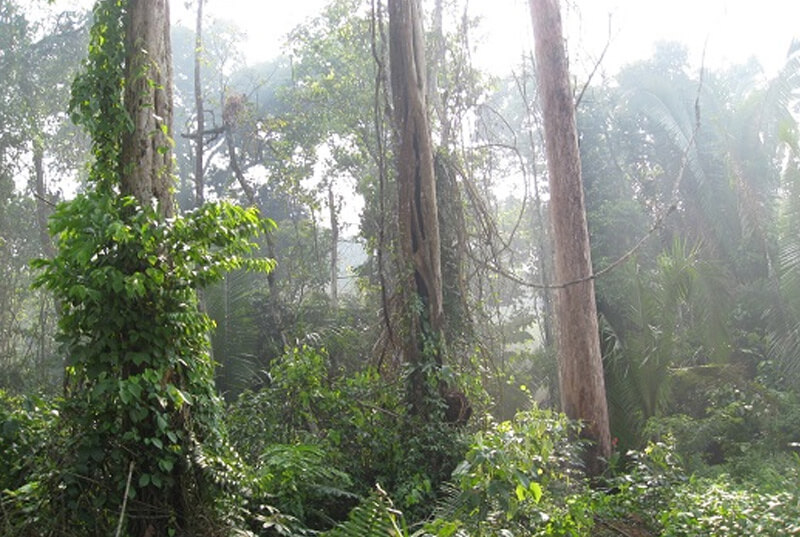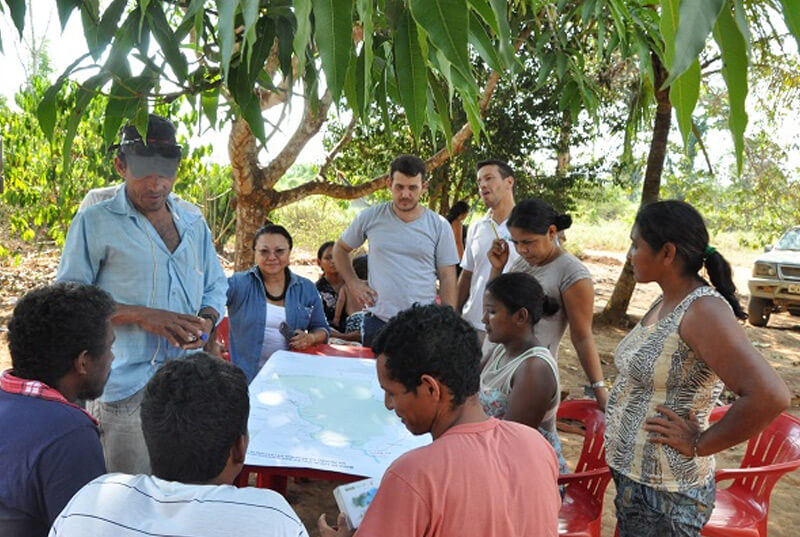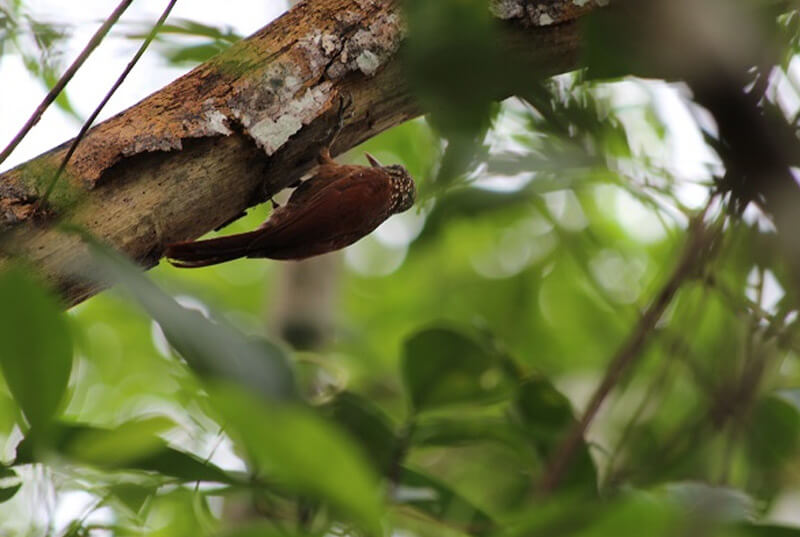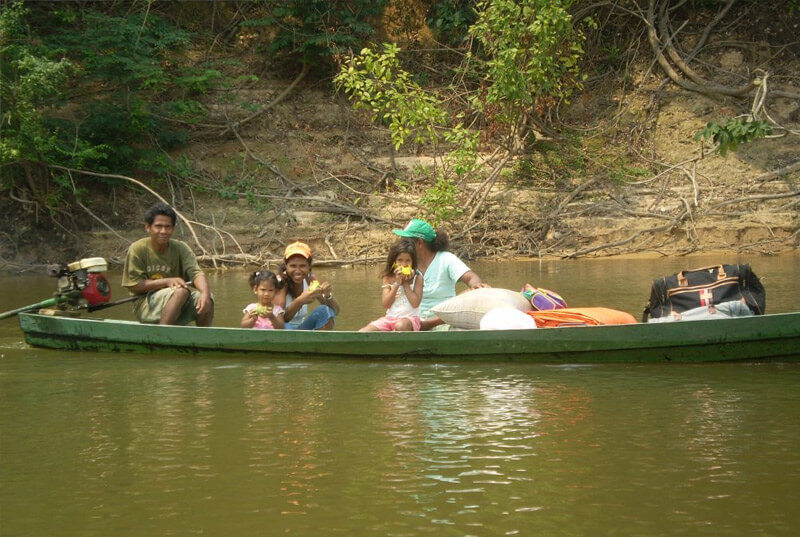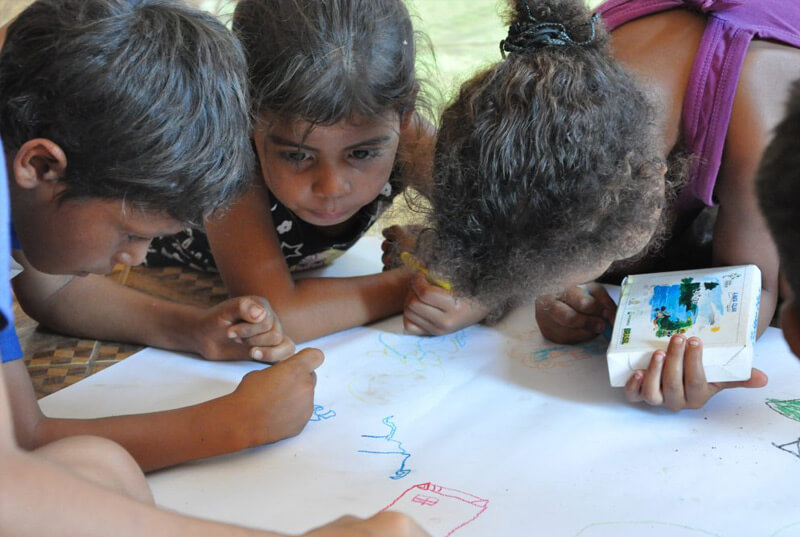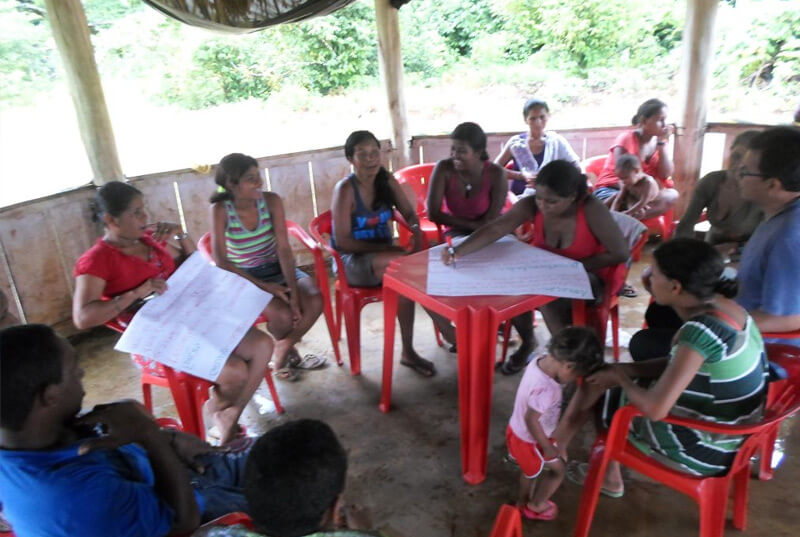Background
The Rio Preto-Jacundá Extractivist Reserve (RESEX) is a state Conservation Unit created in the 1990s by traditional rubber-tappers families. The project is a REDD+ (Reducing Emissions from Deforestation and Forest Degradation) project. REDD+ is a voluntary climate change mitigation approach, set up to incentivize developing countries to halt deforestation. In addition, the mechanism can help fight poverty while conserving biodiversity and sustaining vital ecosystem services.
The main goal of Jacundá project is the promotion of a sustainable extractive community. Through reducing forest degradation and unplanned and illegal deforestation, emission of greenhouse gases (GHG) are reduced. The reserve has a territory of 95.000 hectares. It is the goal to avoid deforestation of 35,398 hectares over a 30-year period.
The project is located in a region of great deforestation pressure from the predatory exploitation of natural resources. The area is home to threatened endemic species of flora, mammals and birds; species of which the residents of the Protected Area depend upon to live. Via the
commercialization of environmental services, the community residents now have a way to grow their social development and conserve their territory. The project has a strong social bias and focuses on both climate, communities and biodiversity and has achieved CCBS gold level for Biodiversity and Community. Through a community-based approach, Jacundá REDD+ Project aims to conserve and promote the sustainable use of local biodiversity, simultaneously preserving the community’s culture, lifestyle and livelihood.
Focus is on investments in infrastructure, monitoring of the vulnerable biodiversity and forest cover, and improving the people’s quality of life. Besides fostering the preservation of the deforestation-vulnerable green areas, its premise is to grow the socio-economic development in these areas which, more often than not, suffer from a lack of basic public services and basic infrastructure. Maintenance of forest cover in the Project Area ensures the protection of habitats, provision of natural resources and ecosystem services, enabling the continued provision of timber and non-timber forest products and favoring socio-economic stability in the region.
Collaboration
Climate Neutral Group works with the project by supporting, sponsoring financing and making possible the reduction of greenhouse gasses and various initiatives in the social, environmental and economic scope. This initiative carries a VCS + REDD+ certification. The VCS certification guarantees that the effects, monitoring, and auditing of emission-reducing projects are done properly. In addition, Climate Neutral Group is a member of The International Carbon Reduction and Offset Alliance (ICROA), which monitors our working methods annually. Together with the choice for VCS, this guarantees reliable climate compensation.



